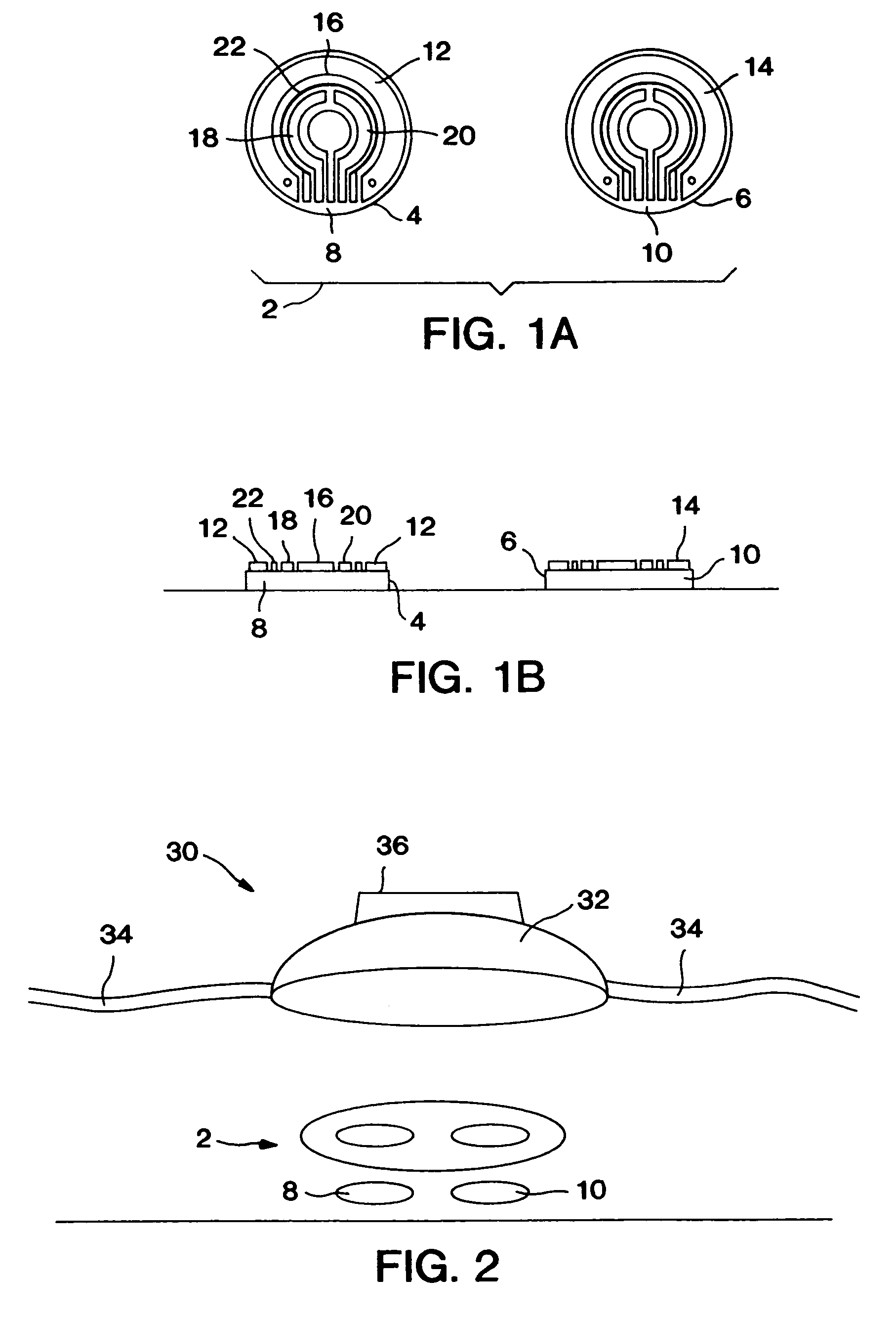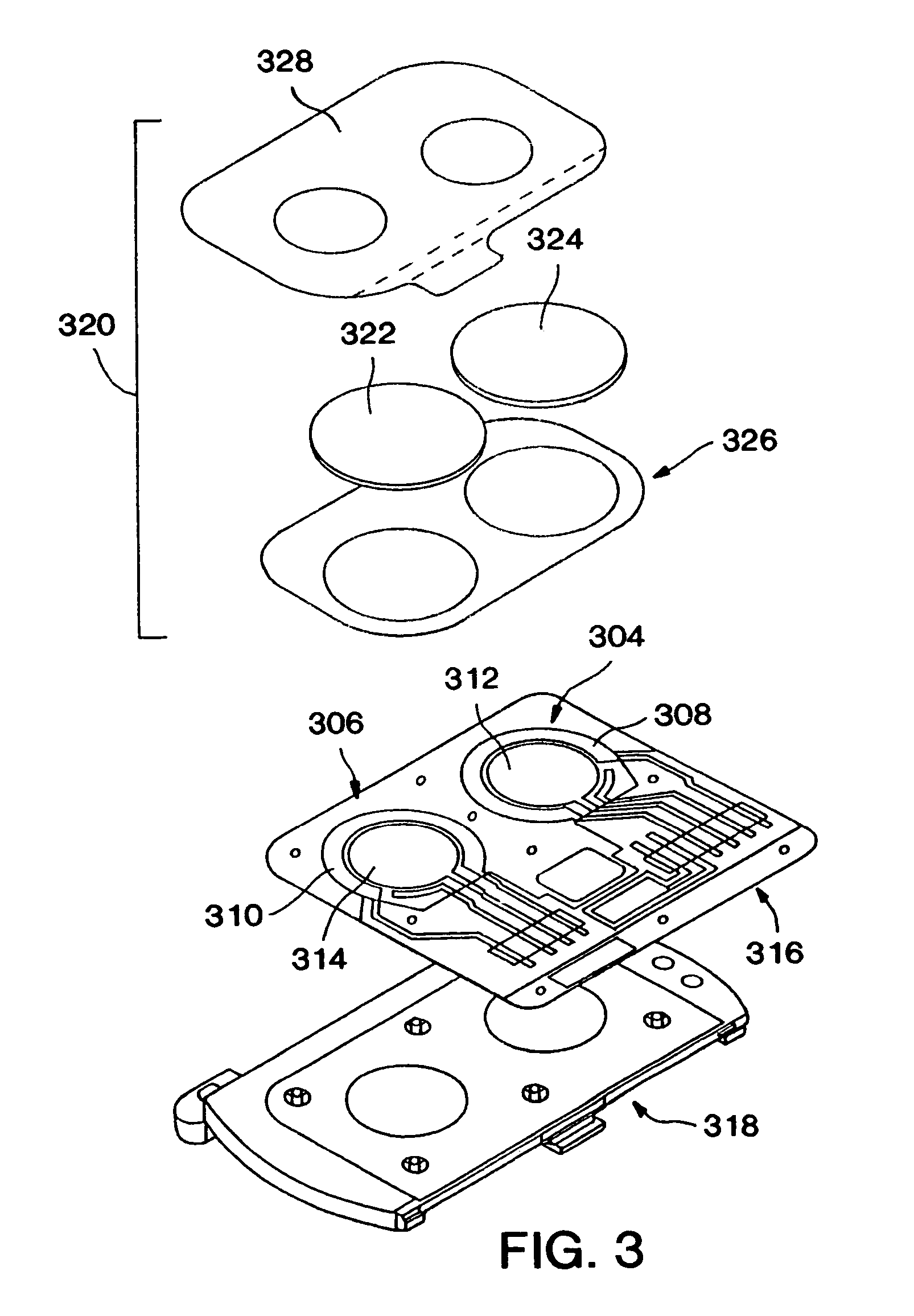Monitoring a physiological analytes
a physiological analyte and monitoring technology, applied in the field of monitoring a physiological analyte, can solve the problems of poor patient compliance, coma and death, and the abatement of the monitoring process of the diabetic, and achieve the effect of reducing the effect of interfering species
- Summary
- Abstract
- Description
- Claims
- Application Information
AI Technical Summary
Benefits of technology
Problems solved by technology
Method used
Image
Examples
example 1
Selective Extraction to Reduce Interfering Species
[0138]In order to confirm that certain interfering species are preferentially collected at the anode of an anode / cathode collection system, the following study was carried out. Iontophoretic sampling was performed on a subject using a prototype iontophoretic sampling system. The iontophoretic sampling system has two iontophoretic collection reservoirs each having an iontophoretic electrode.
[0139]The subject ingested 250 mg of ascorbic acid at the following time points: (1) two hours prior to start of sample collection; (2) one hour prior to start of sample collection; and (3) at the time when sample collection was first initiated. Iontophoretic sampling (reverse iontophoresis) was performed for 15 minute extraction phases, which were followed by a 5 minute period during which buffer sample was removed from the iontophoretic collection chambers and replaced with fresh buffer. Samples were taken every 20 minutes for two hours. The iont...
example 2
Reduced Sensitivity to Interfering Species at Lower Biosensor Operating Potentials
[0141]In order to confirm that certain reduction in biosensor operating potential can reduce sensitivity to interfering species, the following study was carried out. Iontophoretic sampling was again performed using a prototype iontophoretic sampling system. Comparisons were carried out between signals obtained using a platinum biosensor electrode operated at either 0.6V or 0.5V. More particularly, signals for hydrogen peroxide, tyrosine and tryptophan were obtained at each operating potential. The results of the study are reported below in Table 2. The slope is for the linear relationship between detected current at 30 seconds, and the concentration of the reacting species.
[0142]
TABLE 230 sec30 secSpeciesslope @ 0.6 Vslope @ 0.5 VHydrogen112.9115PeroxideTyrosine33.93.28Tryptophan15.230.39
As can be seen, operating the Pt electrode at a lower potential (0.5V) substantially reduces sensor signals arising ...
PUM
 Login to View More
Login to View More Abstract
Description
Claims
Application Information
 Login to View More
Login to View More - R&D
- Intellectual Property
- Life Sciences
- Materials
- Tech Scout
- Unparalleled Data Quality
- Higher Quality Content
- 60% Fewer Hallucinations
Browse by: Latest US Patents, China's latest patents, Technical Efficacy Thesaurus, Application Domain, Technology Topic, Popular Technical Reports.
© 2025 PatSnap. All rights reserved.Legal|Privacy policy|Modern Slavery Act Transparency Statement|Sitemap|About US| Contact US: help@patsnap.com



